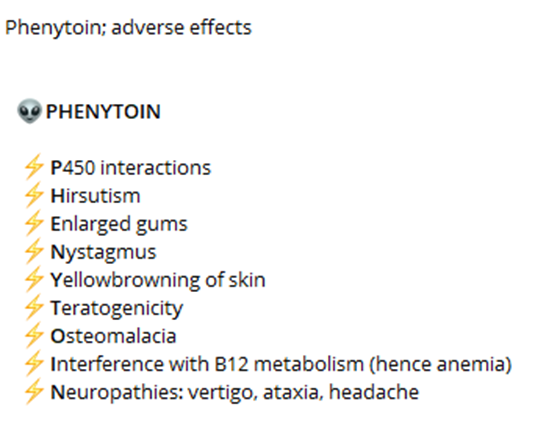A nurse is reinforcing teaching with a client who is taking benztropine to treat Parkinson's disease. The nurse should instruct the client to report which of the following findings as an adverse effect of the medication?
Excessive salvation
Difficulty voiding
Diarrhea
Slow pulse
The Correct Answer is B
A. Excessive salivation:
Excessive salivation is not a common adverse effect of benztropine. Instead, anticholinergic medications like benztropine often cause dry mouth, which is more common than excessive salivation.
B. Difficulty voiding:
Difficulty voiding, or urinary retention, is a potential adverse effect of anticholinergic medications like benztropine. Anticholinergic drugs can cause relaxation of the detrusor muscle in the bladder, leading to urinary retention. Therefore, the nurse should instruct the client to report any difficulty or inability to urinate.
C. Diarrhea:
Diarrhea is not a common adverse effect of benztropine. Instead, anticholinergic medications like benztropine typically cause constipation due to their antimuscarinic effects on the gastrointestinal tract.
D. Slow pulse:
Slow pulse, or bradycardia, is not a common adverse effect of benztropine. Instead, anticholinergic medications like benztropine may cause tachycardia (increased heart rate) due to their effects on the autonomic nervous system.
Nursing Test Bank
Naxlex Comprehensive Predictor Exams
Related Questions
Correct Answer is B
Explanation
A. Fresh fish
Fresh fish does not contain significant amounts of tyramine. Therefore, there is no need to eliminate fresh fish from the client's diet due to its interaction with selegiline.
B. Cheddar cheese
This is the correct answer. Cheddar cheese is a high-tyramine food and should be eliminated from the client's diet when taking MAOIs. Aged cheeses, such as cheddar, contain high levels of tyramine due to the fermentation process, which can increase the risk of a hypertensive crisis when combined with MAOIs.
C. Cherries
Cherries do not contain significant amounts of tyramine. Therefore, there is no need to eliminate cherries from the client's diet due to their interaction with selegiline.
D. Chicken
Chicken does not contain significant amounts of tyramine. Therefore, there is no need to eliminate chicken from the client's diet due to its interaction with selegiline.
Correct Answer is C
Explanation
A. Diarrhea:
Diarrhea is not a common side effect of phenytoin. While gastrointestinal disturbances such as nausea, vomiting, and constipation may occur, diarrhea is less common. Therefore, it is not a primary adverse effect that the nurse should instruct the client to monitor and report.
B. Wrist pain:
Wrist pain is not a common side effect of phenytoin. Side effects related to musculoskeletal issues such as joint pain, muscle weakness, or muscle twitching can occur, but wrist pain specifically is not commonly associated with phenytoin use. Therefore, it is not a primary adverse effect that the nurse should instruct the client to monitor and report.
C. Skin rash:
Skin rash is a potential adverse effect of phenytoin that should be monitored and reported. Phenytoin can cause various skin reactions, including a mild rash or more severe reactions such as Stevens-Johnson syndrome or toxic epidermal necrolysis. Therefore, the nurse should instruct the client to promptly report any signs of skin rash or other skin changes.
D. Metallic taste:
Metallic taste is a common side effect of phenytoin. While it is not usually a serious adverse effect, it can be bothersome for some individuals. Therefore, the nurse should instruct the client to monitor for this side effect and report it if it occurs persistently or becomes bothersome.

Whether you are a student looking to ace your exams or a practicing nurse seeking to enhance your expertise , our nursing education contents will empower you with the confidence and competence to make a difference in the lives of patients and become a respected leader in the healthcare field.
Visit Naxlex, invest in your future and unlock endless possibilities with our unparalleled nursing education contents today
Report Wrong Answer on the Current Question
Do you disagree with the answer? If yes, what is your expected answer? Explain.
Kindly be descriptive with the issue you are facing.
